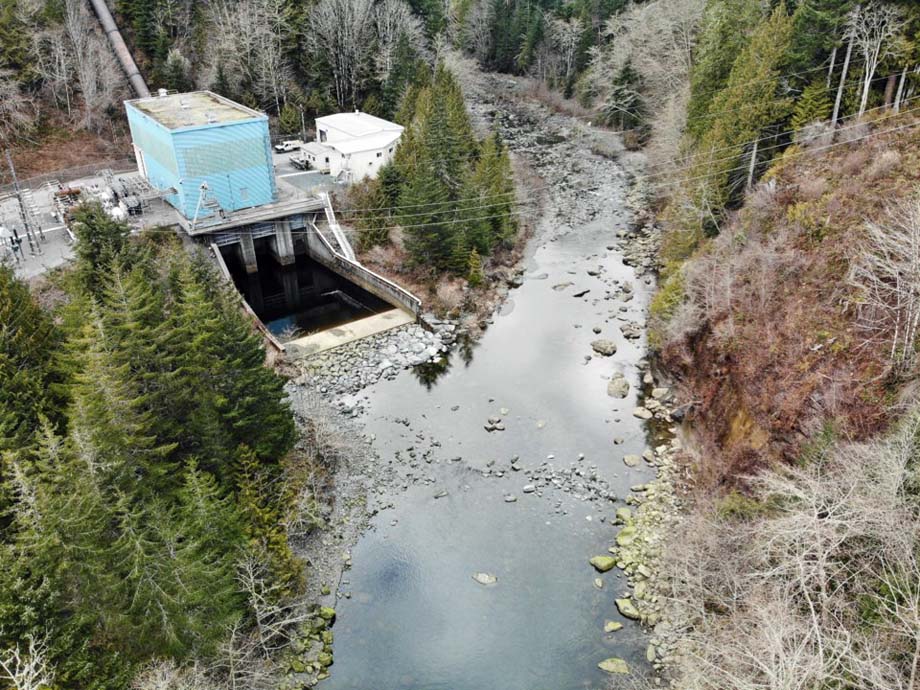Jordan River was once one of the largest and most productive salmon-spawning rivers on southern Vancouver Island, a choice feeding spot for a thriving orca population, and an important seasonal fishing village for the Pacheedaht, Ditidaht, and T'sou-ke Nations.
In less than a century, this sanctuary has been destroyed.
Now more than ever, recurring record-low salmon returns, orcas at the edge of extinction, escalating manifestations of climate change, does repairing the once vital ecosystems matter.
In the case of Jordan River, this starts with holding the right people accountable.
For decades, the Crown corporation B.C. Hydro has knowingly, but inconspicuously, stripped the river of its fundamental conditions for supporting aquatic life in favour of maximizing revenue generation.
A flurry of media coverage focusing primarily on the salacious story about a large deposit of toxic mine waste, and the responsibility of Teck Resources to remediate it, has enabled the real perpetrator, B.C. Hydro, to fly almost entirely under the radar.
The production of hydro electricity, and its corollary effects (restricted water flows and destruction of spawning habitat), have been as detrimental, if not more, to the survival of salmon and myriad other forms of aquatic life.
It began in 1911 with construction of the diversion dam that marked the beginning of controlled water flows on the Jordan River, causing the river to run dry, even during critical spawning periods.
This limitation on sufficient water for salmon to survive was worsened in the 1970s with the construction of the Elliot Dam.
Alongside the building of the new dam was the installation of a new, poorly placed power-generation plant that oriented high-velocity outflows directly at important salmon-spawning habitat.
What was once a precious stretch of gravel (fundamental to the reproduction of salmon) is now a field of boulders.
It isn't surprising, then, that in 1977 a Fisheries and Environment Canada report confirmed that the infrastructure "upgrades" in the 1970s rendered the Jordan River "useless for salmon production."
Almost as discouraging, efforts to restore fish habitat in the river have been laughable.
To date, B.C. Hydro (through the Fish and Wildlife Compensation Program) has provided less than $50,000 for recent in-channel habitat restoration work.
Given how long and how much B.C. Hydro has profited from limiting ecological conditions on the river (the power plant currently generates almost $20,000 of revenue per hour of operation), why is B.C. Hydro so reluctant to make relatively simple reparations?
The answer is simple, At Jordan River, B.C. Hydro has prioritized profit over ecological responsibility.
In a 2008 Jordan River Water Use Plan report, B.C. Hydro admitted that salmon would benefit from an increased water discharge from the dam, but still went on to endorse "no river discharge from Elliot Dam," stating the "societal cost" of "lost electrical energy" could not justify "uncertain ecological benefits."
But ecological benefits of increased waterflows are far from uncertain.
Recently mandated small but consistent increases in flow have directly correlated with immediate increases in fish counts, from fewer than 10 between 1970 and 2015 to about 50 in both 2016 and 2017.
In the 2019 water-use report, B.C. Hydro calls its management of water resources at Jordan River a "success".
It justifies its perpetuation of the crisis by stating the river was already devoid of aquatic life in the 1970s when new infrastructure construction foreclosed any possibility of salmon returns.
While this might be true, it is also true that there are relatively simple steps that can be taken to improve fish returns immediately in the river.
As long as B.C. Hydro claims to be leader in "sustainable energy", it is incumbent upon the company to make the health of the river a top priority.
Our calls for action for B.C. Hydro are simple, (1) Increase minimum water flows with full consideration of the flourishing of salmon population.
(2) Address current power-plant outflows to end the destruction of spawning habitat.
(3) Act immediately on the restoration of salmon spawning beds that were destroyed by hydro-power generation.
Given the current crisis of declining salmon returns and southern resident orcas on the brink of extinction, it is time for a new commitment from B.C. Hydro, a commitment that respects the ecological potential of Jordan River.
For our collective future, B.C. Hydro can no longer fly under the radar.
Wayne Jackaman and Neil Nunn.
(likely no image with original article)
(usually because it's been seen before)
provisions in Section 29 of the
Canadian Copyright Modernization Act.

